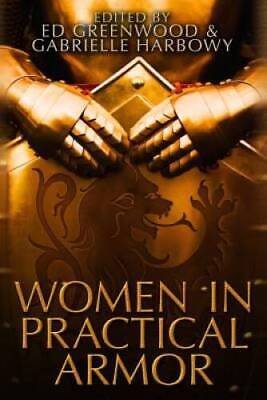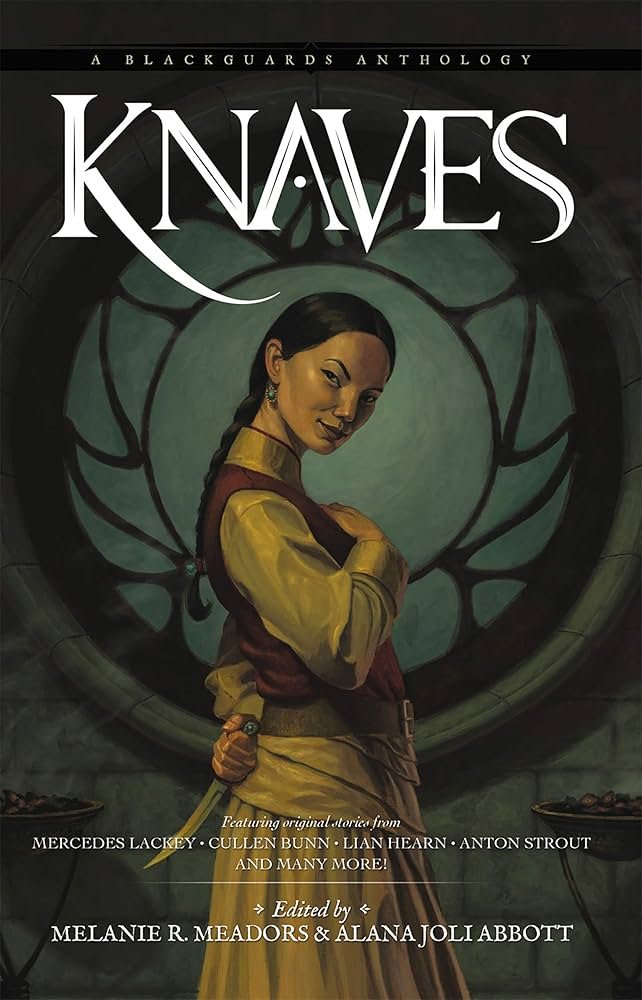Chefs of the Five Gods duology
Written by Beth Cato
published by 47 North (2023 – 2024)
Titles:
· A Thousand Recipes for Revenge (2023)
· A Feast for Starving Stone (2024)
“Chefs of the Five Gods,” Beth Cato’s recent fantasy duology, features intriguing world-building, complicated characters, and strong commentary on how something being a cultural norm or tradition doesn’t necessarily mean it’s morally correct.
The world itself is politically and geographically based on Western Europe in the pre-Colonial period. At the start of book one, A Thousand Recipes for Revenge, Solenn, a princess of Braiz (essentially coastal northern France as its own country) has been promised in marriage to a prince of Verdania (the larger, more landlocked portion of France). Thanks to recent events (including the virtual destruction of Braiz’s once powerful navy), Verdania is a more politically and militarily powerful nation than Braiz. Braiz needs the ally, given its geographic position between Verdania and the equally powerful and antagonistic island nation of Albion, a constant threat. Accompanied to Verdania’s capitol city by only a small handful of musketeers led by her father’s closest friend and her mentor, Erwan Corre, Solenn must navigate the politics of a foreign nation and the burgeoning of a power she didn’t know she had: she’s a Chef.
In this world, ingredients called epicurea, derived from certain animals and plants, hold magic. Foods cooked with epicurea do everything from enhancing stamina and erasing wrinkles to making voices louder and more sonorous … and being used as sometimes-undetectable poisons. People who can empathically sense epicurea are called Chefs, and in Verdania and Albion they are conscripted into service of the government. Especially empathetic Chefs can even sense the aromas and flavors of ordinary ingredients and can perfectly pair epicurean and non-epicurean ingredients to create unforgettable meals. Ada Garland is a rogue Chef, on the run from service to Verdania’s ruthless king and separated from the love of her life, a Braizian musketeer named Erwan Corre. When Ada is attacked by employees of a man she sent to prison many years earlier, she is put on a path that will inevitably lead her to the daughter she sent away with Erwan for safety’s sake: Solenn.
The combination of a volatile political situation and a magic that only certain people can wield is a potent one. Throw in two strong female leads and a diverse supporting cast, all with their own secrets, and you have a fast-moving, often surprising pair of books that I highly recommend.
Solenn has no idea that Erwan and Ada are her parents, so learning she’s a Chef (as she senses poison in a meal being served to her soon-to-be husband) is a shock that leads to the reveal of her parentage. These early scenes with Solenn establish who she is so clearly: strong-willed, intelligent, but still afraid of being alone once she’s married in a court of enemies. She is not happy about being a political tool, but she loves her country too much to shirk what she perceives as her duty. Learning that she is in fact not the child of the parents who raised her, learning that she is in fact “gifted” with a talent she’s only seen others possess, learning that there’s a plot to kill her betrothed … all of this turns her world upside down, but doesn’t deter her from doing what she knows is the right thing.
Solenn’s scenes alternate with Ada’s which almost from the start are more action-packed (arrests, chases, and attacks) but are equally informative about who Ada is: strong-willed, intelligent, well-trained in sword and gun and hand-to-hand combat, afraid of the toll being on the run has taken on her beloved grandmother, also a rogue Chef. She loves the ability she possesses, hates having to create less-than-perfect meals to serve customers at the Inn where she works so that no one will suspect she’s a rogue Chef. She is devoted to her grandmother, to the friends she served with, to the memory of her marriage to Erwan Corre, annulled by edict of Verdania’s king (which forced her to send her infant daughter away). Both women would do anything, risk anything, for the people they love – and throughout the duology they do just that.
Mother and Daughter’s paths slowly converge over the course of the first book, as the true magical origins of epicurea add another layer of intrigue and several of the Five Gods become personally involved in the events. A Thousand Recipes for Revenge wraps up its major plot points before the book’s denouement, but not everyone emerges completely unscathed … and everything escalates in book two, A Feast for Starving Stone. Albionish machinations in book one lead to outright war in book two as Solenn finds herself in a new role, creating an alliance between Braiz and the previously unknown magical world to save Braiz from being overwhelmed by larger and more powerful enemies attacking from both sides.
A large portion of A Thousand Recipes for Revenge is devoted to the political intrigues surrounding Solenn and the revelations of why Ada went rogue (and how that reason is coming back to threaten her), making the book a delightful slow boil of alternating viewpoints, keeping the reader wondering how and when Ada’s and Solenn’s stories will converge. The reveal of the mother-daughter connection comes early, which enabled me to enjoy picking out how similar, and how different, the two women are without too much time spent on wondering why they are so similar. (I should admit here that I received a print ARC of the book and because I’m such a Beth Cato fan, I dove right in without reading the back cover copy, where the relationship is revealed in the first paragraph.) As noted above, they are both strong women who love their families and would do anything to protect the people they love – even if that means facing fatal danger. But where Solenn also loved her country, Ada is jaded and embittered against hers (for good reason), and this difference in political fealty affects the decisions each makes, which in turn propels the narrative. I hope you can tell how much I love, and feel for, both characters.
I also really enjoyed the supporting cast. Not just Erwan Corre, who is a wonderfully relaxed yet dangerous man, but also the sweet but mysterious Aveyron Silvacane and his father Brillat; Ada’s beloved Grand-Mere, suffering from dementia; Ada’s friend and former fellow soldier Emone and her wife Claudette; and others I loath to identify in fear of spoiling some major plot twists/reveals.
While Thousand Recipes focuses very much on behind-the-scenes political machinations and spycraft before moving into a deadly battle, A Feast for Starving Stone’s opening chapter makes it clear that war is no longer imminent, it is here – and Braiz is caught in a pincer between Albion and Verdania. Solenn and Ada again find themselves on separate quests to protect the people they love, again at great personal peril, and again caught up in the games several of the Five Gods seem to be playing with humanity and with each other. Starving Stone is a much faster paced, blatantly action filled than Thousand Recipes, which puts the books in interesting counterpoint to each other, just as Solenn and Ada counterpoint but complement each other. There is much more bloodshed in Starving Stone but there is also emotional healing and bonding. The book has a lot to say about how we heal from trauma, and how we sometimes come to forgiveness and understanding for those who have harmed us. (Solenn in particular has a painfully beautiful arc regarding this.)
Throughout both books, it is clear that all of these countries regard epicurea as a tool, drawn from animals who are not as important as the humans in control of the world. Many of these animals are hunted to near extinction or bred in horrible circumstances, the plants overharvested. While I am not a vegetarian or vegan, I recognize the parallels between the epicurea of Cato’s world and the hunting, cruel breeding/raising, and overharvesting that happens in our own. As mentioned earlier, Cato makes a persuasive case that just because something is an ingrained cultural institution doesn’t mean it is the morally correct or empathetic thing to do. But we’ve all seen in our own world how hard it is to get people to change from “the way it’s always been” to “a way that is more caring,” and the characters in this duology struggle with what will be a massive cultural shift.
“Chefs of the Five Gods” is currently billed as a duology, and the second book ends on a satisfying note with all the major plotlines tied up, but I really hope Cato will return to this world. It feels like there’s still plenty to explore both in where the characters will go (I totally ship Solenn and Aveyron, by the way. If I wrote fanfiction…) and in the shifts in politics and culture that the reveal of the truth about epicurea should bring about. Still, for now the story is done and I cannot recommend highly enough that fantasy fans seek out A Thousand Recipes for Revenge and A Feast for Starving Stone.








